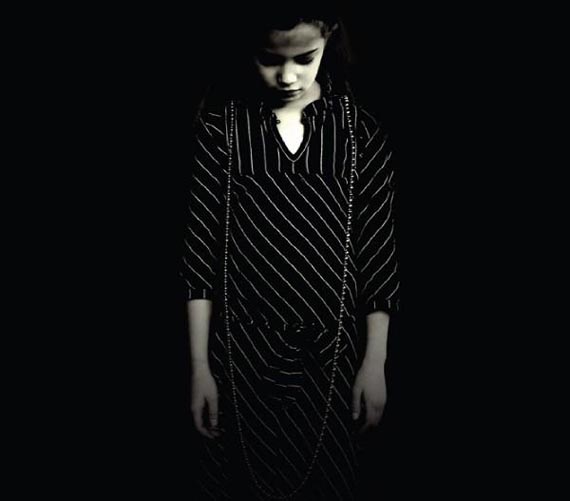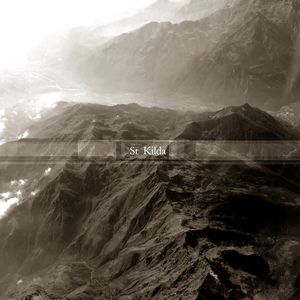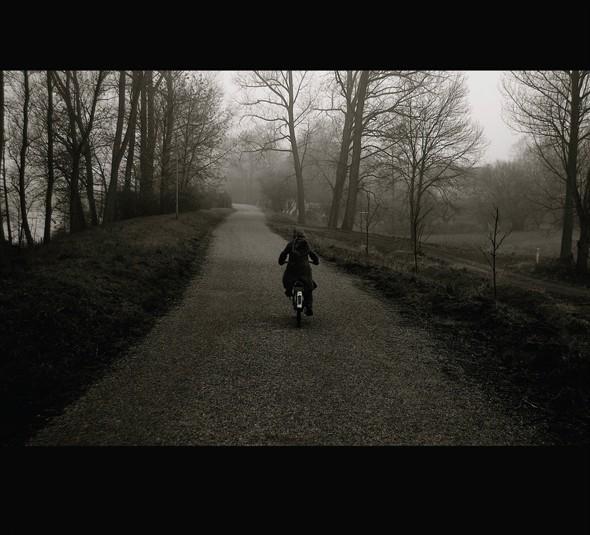CD Reviews
Live Reviews
Coming Events
- Sep 10: Monster Magnet
- Sep 18 & 20: Children Collide
- Sep 22: Suzi Quatro
- Sep 23: Flo Rida
- Sep 24: NOFX & Bad Religion
- Oct 5: Marilyn Manson
- Nov 12-14: Sarah Blasko
- Nov 20: Seal
- Dec 4: Green Day
Feature Article
Last Days Interview
By: Michael Henaghan

Emotive, escapism, empathetic. Just three of the words that can be used to describe the sound created by Graham Richardson, who over the last half decade has carved a niche as the premier in melancholic, wistful soundscaping as Last Days.
His latest effort for n5MD, 'Safety of the North' is his most ambitious yet, drawing on the strength and influence of the hope in our lives to complete his most fully realised work to date. Intended as a 'score' of sorts, it's easy to bandy around terms such as 'cinematic', yet such tagging remains fully warranted where Richardson is concerned.
He recently sat down with [Sic] Mag to reveal all about his new record, his latest side-project St Kilda and the difficulty in expressing such powerful emotions using predominantly wordless music.

Sic Mag: Hello Graham, You've got a new album due out through n5MD entitled 'Safety of the North'. Apparently, it is a script-based record and you've embraced cinematic tendencies. Please tell us more?
Graham Richardson: I wrote my first album with a very basic plot, i found it quite a useful tool to have in mind a beginning and an end i could then join the dots easily as i knew where it had begun and needed to go. I followed a similar plan with the new record except i wanted to show through field recordings, art work and track titles more details about these characters lives than on 'Sea'. Without going into too much detail i hope people who listen might be able to join a few dots. I'd describe this approach simply as a 'tool' to make music, it's totally secondary to the music, it just helps me have some focus and make something that flows. I wasn't setting out to make an epic prog-rock concept album or something!
Sic Mag: Why name the central character this time round (Alice), "Sea", for example, featured an ambiguous, faceless character?
Graham Richardson: 'Sea' was more about the emotional state of the character and apart from 'Arriving at Jan Mayen' there wasn't many situations identified, it was more like a soundtrack to being lost at sea and the overall mood. I didn't think it was necessary to get any more specific than i did. With the new record i could have gone down the same route but i thought I'd try and challenge myself and write music for a more detailed narrative. So I started by outlining a very basic story, the time frame and locations, main events etc. Initially I had not planned on naming the girl but the name popped into my head (i like that name!) and it stuck and seemed appropriate to include in one of the track titles.
This album is very specifically about loss and for the listener to have any empathy for the main character I thought it useful to bring them a little closer with a name, photographs and a voice.
Sic Mag: The album title, 'Safety of the North', is the part autobiographical given your roots in Newcastle, perhaps a continuation of the 'revisiting the past' theme of your previous record.
Graham Richardson: Not really, I have a fascination with the north but this album isn't autobiographical at all.

Sic Mag: The press notes for 'Safety….' allude to the fact that hope is the only certainty in life. It's a notion I believe is threaded through each of your records, would you agree with that statement?
Graham Richardson: Yes, definitely. I really don't think i have it in me to make an entirely dark record. I'd feel dishonest if i didn't reflect reality. I'm happy to explore dark themes but I also want reflect that everything works out OK in life because I sincerely believe it does, no matter how long it takes or what you have to go through to get there.
Sic Mag: The album took a little longer to record than previous efforts, as a musician how does the 2005 version of Graham Richardson compare to the 2009 version. During frequent updates you alluded to the fact that the recording process was difficult?
Graham Richardson: Perhaps not so much difficult as time consuming, getting the sound and mood right took time. Compared to the other two records I feel that this one is more rounded and complete, it took more effort and I'm pleased i occasionally took time out to step back and look at what I'd done. A few weeks ago I listened to 'Sea' for the first time in about a year and was surprised to hear how basic it sounded, which is no bad thing but musically I think there's more to involve the listener on the new record. Since 2005 I think I've developed a bit more confidence in what I'm doing.
Sic Mag: It's safe to say this is an ambitious record, has it been a problem to convey the correct emotions on each 'scene' you were looking for, after all asides from a few spoken word excerpts, only 1 track has a vocals?
Graham Richardson: At times it was a problem. On paper the story is split into 15 parts which I felt was just enough convey the main details of the story. It was sometimes difficult having a specific scenario or event in mind and writing a track that both sounded good and was relevant. I had about 5 attempts at writing what became 'May Your Days Be Gold', and there's 3 versions of 'The City Failed'. The versions that didn't make the album sounded good but didn't express what I felt they should have. There were a few times when I just stopped working on a particular tracks for a couple of months and came back to them later with fresh ears.
Sic Mag: Also during these updates, you predicted a shift towards a more 'pop' direction. Assuming you're not about to go head to head with Simon Cowell, how does this direction manifest on the record?
Graham Richardson:From my point of view I feel there's more tunes on here, more melodies and less ambient or abstract pieces. It's a more conventional record. I think that trend might continue in the future but I really have no plans. I still like the sound of 'Sea' but I'll probably use St Kilda as an outlet for that kind of thing.

Sic Mag: Last time we spoke about your 2nd album ('These Place Are Now Ruins'), you talked of some unconventional recording practices, involving kicking timber across a room, anything of a similar nature on this record?
Graham Richardson: I walked through a few fields and sat by a couple of rivers with a microphone but there's nothing too unconventional on the record this time. The 'bleep' on 'Life Support' is the minimising and maximising of a window on my computer. This was played through a guitar amp at full volume, I'm not even sure if it's supposed to have a sound but if it's turned up enough it does.
Sic Mag: After 'Sea', this is your second album dealing with the idea of a better life or an escape from society as we know it. Is this something you often think about?
Graham Richardson: I love the noise and energy of cities but i also love to get away from it all sometimes. I think it's good to be miles from anywhere occasionally and certainly a simpler lifestyle is something I feel drawn to, maybe not just yet. I could live in both places and sometimes feel divided about where I'd like to be. Maybe writing about remote places is some kind of escape for me.
Sic Mag: I also noticed the final track is called 'Onwards', perhaps paving a way towards a sequel or a return to later on in Alice's life?
Graham Richardson: I don't plan a return to this story as there's too many things I'd like to try. The title 'Onwards' refers to Alice and her mother accepting or at least coming to terms with the events that have unfolded and realising that in time they will be able to move on in some sense. I pictured them marching. As always, i like to end the story showing a bit of hope.
Sic Mag: A few other track titles stuck out for me too, "Nothing Stays the Same, Nothing Ever Ends", for some reason, seems quite a sad title to me. What did you mean by this?
Graham Richardson: The first part of the title (and the first half of the track) 'Nothing stays the same' refers to change, loss and how we have no control over events or what happens to people. 'Nothing ever ends' are the memories of all these things, people or the mark they left on the world. It just means that the present can change at any moment but history can't.

Sic Mag: There's also collaboration between Fabiola Sanchez (pictured)of Familiar Trees on 'May Your Days Be Gold'. She has a quite beautiful voice, was the search for such a vocalist difficult?
Graham Richardson: The search was difficult and i had almost given up. At one point I had thought about making it instrumental or scrapping it altogether. I had the music for that song for almost a year then 6 months later I wrote the lyrics. As soon as the words were done I knew exactly what the voice should sound like. I searched through a few people on myspace and even got in touch with a couple of vocalists but time restrictions prevented anything from working out. I'm glad they didn't work out because I remembered I had heard Familiar Trees a few months earlier and knew they had lovely vocals. Mike at n5MD sent them a mail and once they heard the song they kindly agreed to try something.
I couldn't believe it when I got the recording back. In my imagination I had heard that song with vocals hundreds of times and now I was listening to Fabiola singing exactly the same. I was delighted to say the least. Both Fabiola and Ken Negrete (who recorded her) have done a beautiful job.Sic Mag: I'm intrigued by the 'cinema' idea of this record; where you directly inspired by a particular film or director and would you ever like to see your 'script' brought to life?
Graham Richardson: With the story element it's easy to understand why this album is being described in places as 'cinematic' – it's also a word I've used myself to describe my music as I feel Last Days might work in a movie but occasionally I think it's taken a little too literally. It wasn't my intention to make what sounds like a soundtrack to movie. It's true to say I visualise the scenes and characters but the narrative is no more related to film as it is to a book, poem or play. I'd say the album is simply a soundtrack to a story, not specifically a movie, but if anyone imagines a few images while listening then that would be something I'd be delighted with. So no, the album wasn't directly inspired by a film or director.
Sic Mag: Moving away from 'Safety….' you also have a side-project on the go, what can you tell us about St Kilda?
Graham Richardson: When I had finished 'Sea' I had the beginnings of tracks that I wanted to use at some point but they didn't seem like they'd naturally work on a Last Days record. They were sounding more abstract and desolate and as I've mentioned Last Days is possibly going in the opposite direction. I decided to give these tracks a new home which I've called 'St Kilda'. This is the name of the remotest part of the British Isles, a small island 41 miles off the west coast of Scotland. It's a harsh landscape and quite mysterious place with a sad history so it seemed an appropriate name. There's a 4 track EP out on Phantom Channel(pictured). I haven't planned anything else for St Kilda but I'm sure something will happen eventually, an album would be nice.
Sic Mag: You've conducted a good few interviews now, is there a particular question you wish the interviewer would ask?
Graham Richardson: Nope, they usually cover everything!
© 2010 BlowOut Indie Music Magazine Inc. All rights reserved.


